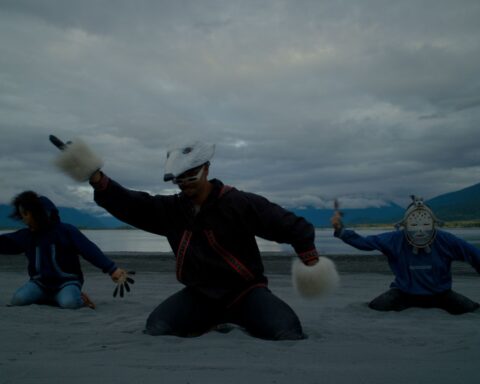When Arabs Danced
(Belgium, 84 min.)
Dir. Jawad Rhalib
Programme: TIFF Docs (North American Premiere)
Three cheers for the power of positive images! Too often do western media characterize the Arab world through images of war, conflict, poverty, and misery. While these elements are factors of contemporary reality, they do not offer the full picture. Director Jawad Rhalib offers a bold and much-needed corrective to characterizations of the Arab world in the compelling and empowering documentary When Arabs Danced. The film gives voice to Arabs worldwide who refuse to be defined by new waves of conservatism, fundamentalism, and nationalism. ISIS, Al-Qaeda, the Taliban, and other groups have had their turn in the headlines—it’s now time for ordinary citizens to have theirs.
Coming after the recent waves of occupy-themed films about the Arab Spring movement, When Arabs Danced shows the resistance to change in some corners of the globe. Rhalib lets audiences debate how much progress has been achieved as he reflects upon images of the Arab community both past and present. He sees dance as central to the complex contradictions in Arab countries and uses this seemingly innocent act to interrogate the fundamentalism suffocating his people.
As Rhalib and several interviewees note, nothing in the Quran prohibits dancing. However, the rising slide into backwards conservatism faith focuses on the sexual character of dancing and associates the art with sin and transgression. Rhalib uses as the foundation for his study his experience growing up with a mother who belly danced. He reflects upon her hypnotic movements and the images of beauty and strength she embodied. However, the cultural context reframed his love and respect for his mother as feelings of shame. As he says in the doc, “dancer” was as bad a slur as “whore.” Being the son of a dancer left him ostracized at school and emotionally conflicted about his feelings towards his mother. These feelings of shame and resentment, if not interpreted critically, can metastasize into the kind of fundamentalism that constricts human dignity and social progress.
Rhalib collects archival images and footage of contemporary Arabs, mostly ex-pats and refugees living in Europe, to illustrate the resilience of a people who use their bodies as a powerful tool for self-expression. In Egypt, young teens learn the art of dancing in safe spaces. While ballet class might simply be an after school activity in Canada and the USA, it offers an act of defiance for these aspiring dancers. In between rehearsals, they articulate to Rhalib their experiences at school where their bodies and identities are repressed simply because they are girls. A Belgian theatre company, on the other hand, creates a bold stage production that plays upon (mis)conceptions of Muslim fundamentalism. The actors debate how best to realize the material, but at the same time, the Muslim members of the ensemble advocate for authenticity and respect, like a brilliant moment in which the team debates whether a Belgian actor should appear naked before the crowd while his character converts to Islam. The ignorance of the Belgian actors versus the Muslim actor’s insistence that he not appear naked offers a telling example for the power of dialogue and respectful listening to create understanding.
Especially powerful are scenes featuring the great actress Hiam Abbass (The Visitor, Blade Runner 2049) as she rehearses a provocative one-woman play. The drama gives Abbas the stage to own her character’s sexuality and define it in a space not controlled by men. She speaks of sex in a monologue laden with expletives and provocations, challenging one-dimensional characterizations of femininity perpetuated by fundamentalists while creating a woman who is loudly and proudly of both the Arab and modern worlds.
To dance is to celebrate life. The creations that Rhalib captures in his documentary are necessary acts of resistance. His interviewees refuse to let their faith be defined by groups who use it as a weapon. Driven by a melodic score and empowering images, When Arabs Danced is a welcome reminder that actions speak louder than words.
When Arabs Danced screens:
-Thurs, Sept. 13 at Jackman Hall at 6:15 PM
-Fri, Sep. 14 at Cineplex Scotiabank at 9:45 PM
-Sat, Sept. 15 at Cineplex Scotiabank at 2:15 PM
Courtesy of TIFF











